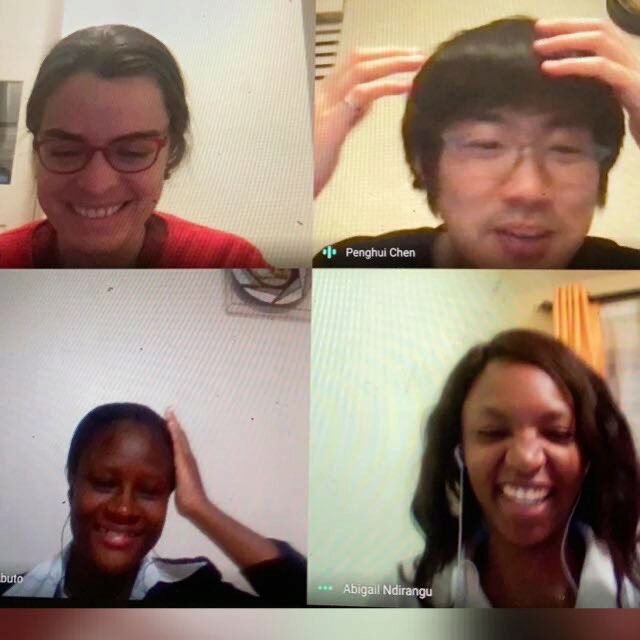The crisis of substandard and counterfeit medicines in sub-Saharan Africa is estimated to cause 116,000 extra deaths per year due to malaria alone. In the The Business School Alliance for Health Management (BAHM) global case competition, Vanessa Folkerts WG’20, and Jason Chen, WG’21, teamed up with students from the Strathmore Business School in Kenya to create a data-based solution to this crisis.
Their proposal – an e-commerce pharmaceuticals marketplace designed to empower small pharmacies on the frontline of primary care to sell quality medicines in rural Kenya – won first place along with an $11,000 prize.
“We came to Wharton looking for hard problems and how we could realign incentives in the market to change behavior, while adhering to local social and legal frameworks,” said Vanessa. “This project was an opportunity to create shared value in a critical supply chain.”
The team’s marketplace uses network effects to improve price discovery in the pharmaceuticals market and increase the value captured by end consumers. Vanessa, Jason, and their teammates Abigail Ndirangu and Winnie Abuto in Kenya conducted dozens of interviews from January to March to design a user-friendly app for retail pharmacies to procure quality products from vetted wholesalers.

Jason noted, “We realized that we can use market competitiveness to create collective value – and with enough creativity, benefit all the stakeholders. We take that responsibility for generating positive impact very seriously.”
As a case for creating economic value while addressing a societal problem, the team’s work has been invited for publication in the BAHM-affiliated journal, Health Management, Policy & Innovation.
Achieving Greater Impact in Healthcare
Vanessa came to Wharton to learn how to achieve greater impact in healthcare, including scaling the reach of low-cost telemedicine at her digital startup, HealthTap.
“In a nascent industry often constrained by legal barriers, I was looking for business models to make healthcare more affordable, accessible and effective. Wharton’s faculty opened the doors to research projects in AI applications and regulation,” said Vanessa, who is currently earning a Master’s in computer science and information technology at Penn.
She added, “Thanks to the supportive and passionate faculty, who are powerhouses in their fields, I’ve incorporated more independent research into my MBA than I expected. I had published a chapter in Prof. Robert Lawton Burns’s book China’s Healthcare System and Reform before starting the program and was excited to jump into health economics, management, and policy.” She currently has a working paper about data platforms in decentralized clinical trials, co-authored with Prof. Nicolaj Siggelkow.
Moving the Venture Forward
Jason came to Wharton with a background in entrepreneurship, product, and social impact investing, looking to “partner with diverse, talented people and acquire new mental models in unfamiliar industries” – particularly healthcare.
The BAHM competition under pandemic conditions offered the unexpected opportunity to collaborate with MBAs and health professionals 10,000 miles away. Eighty hours of Zoom teamwork later, the prize winners are looking forward to meeting in person and taking the entrepreneurial venture forward.
“Even in dark times, there are so many grounds for optimism. Wharton has helped us expand our horizons and build friendships even while we remained physically constrained,” said Jason. “Our Wharton chapter may be ending, but we are only just getting started.”
— By Meghan Laska
Posted: April 29, 2021




















